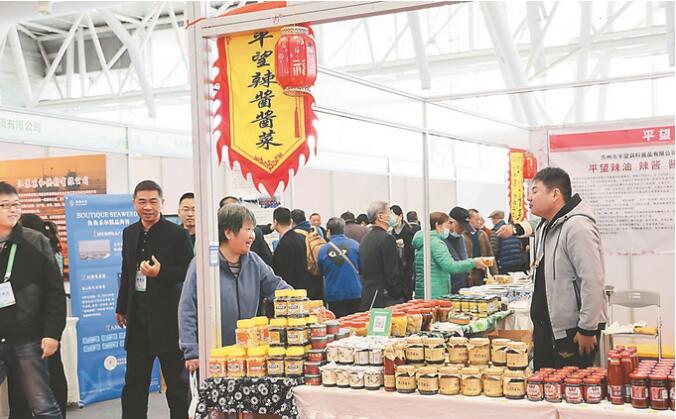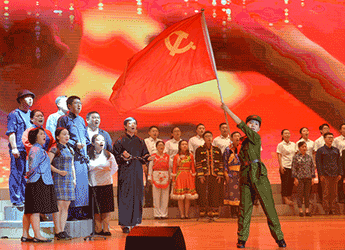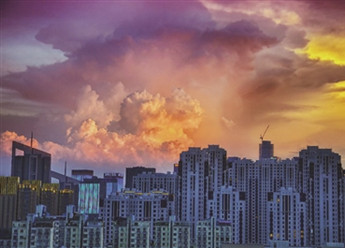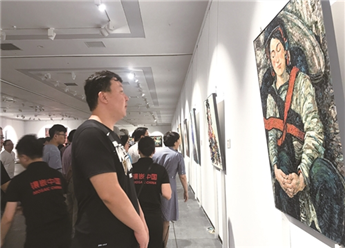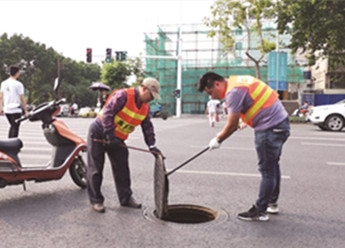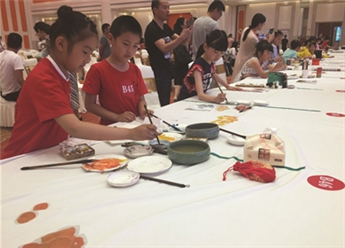为了南京的发展贡献自己的绵薄之力

在万里长城上
作者简介:金明焕,韩国籍,南京锦湖轮胎有限公司总经理。自1995年起首次被派驻到南京工作以来,已共在南京生活近20年。
大家好!我是南京锦湖轮胎有限公司的总经理金明焕。我从1995年开始到现在已经3次被派驻到南京来了,这期间除了在韩国工作五年以外,十多年时间是在南京度过的。不知不觉我已经完全变成南京人了,这次非常荣幸能将我在南京的亲身见闻、体验跟大家一起分享。
1992年韩中建交,韩国人到中国必须申领签证。为了得到签证,当时出国人员必须接受韩国政府的4小时安全教育。1995年第一次被派驻到南京的时候,我也接受了教育,那是资本主义韩国和社会主义中国之间意识形态对立影响残存的时代。当时的中国对韩国人来说虽是地域相近的邻国,却感觉很遥远,大部分韩国人对中国存在着好奇心,也视中国为警戒对象。从首尔经上海到南京,我在开往南京的火车站前看到了列队训练的军人(后来才知道不是军人,是小区保安)和老式厕所,这才切实地感受到自己已经到中国了。到了南京,看到有个南京人在使用韩国也没有大规模普及的手机,当时的我就像同时看到了我经历过的70年代和90年代一样奇妙。
到南京赴任后的几个月时间内,我经常出差到北京等地,也有自己独自出行的时候。我当时完全不懂中文,拦到的士后只能跟出租车司机用各种手势比划说明,经常去的地方是火车站。一些出租车司机知道我是外国人之后,会在火车站前停好车,亲切地带我到卖票窗口,甚至有的司机会买好票放到我手上;夜深的时候,出租车司机告诉我外国人晚上出来有危险,会把我一直送到住的地方。当时的南京人非常朴实,亲切的南京人让我觉得非常感动。
1995年的南京,给我的第一印象虽然是个大城市,但是除了新街口有一个红绿灯以外,其他地方很少有红绿灯。当时汽车不多,满大街都是自行车,还有现在到国外旅游才能看到的有轨电车。韩国没有像长江一样的大江,有一次我的同事去长江边钓鱼,钓到了一条1.2米长的大鱼,为了把鱼暂时保管起来,实在没办法把鱼放到了酒店的浴缸里,浴缸里塞满整条鱼的样子至今还历历在目呢。那天晚上我和另外13个同事一起好好地饱餐了一顿,直到后来才知道,其实那条鱼并不是长江里的,是临近长江的养殖场里抓来的。
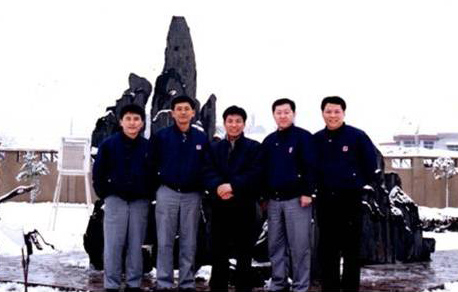
和南京的同事们在一起
第一次派驻南京4年后回韩国,又过了3年,2002年起我开始了第二次南京生活。一开始没能找到房子,住在玄武饭店,我从房间往下看,看到玄武湖的水都干了,于是惊讶地问酒店的员工,他说在建贯通玄武湖的地下隧道,所以把水都抽干了,等以后建好了再把水填进去。当时为了迎接世界华商大会、全国体育大会等国内外大型活动,南京展开了包括玄武湖隧道在内的大规模造景工程、道路施工、地铁建设等,南京逐渐从外观上变身为一座国际化大都市。
中国经历了2003年非典(SARS)流行、2008年四川汶川大地震和世界金融危机,其间南京也经历了很多磨难。最终,全国上下彻底的隔离治疗有效控制战胜了非典,全国人民的关心和救护活动战胜了四川省大地震的悲痛,为了盘活经济克服金融危机,中国政府引入社会间接资本投资高铁和高速公路。所有的困难都被一一克服了!高铁的发展速度也让人刮目相看,只用了3年的时间就完成了上海到北京的路线,现在的中国各大城市都被蜘蛛网似的高铁贯穿连接起来了,中国的高铁技术实力已经被世界认可并出口到巴西等国。
我第二次在南京生活了7年,第三次是从2011年开始的,到现在已经是第六个年头了。20年前的南京已经完全无法跟现在相提并论了,中国的发展速度超越了世界任何国家。但是随着城市的发展,交通拥挤、停车困难、空气污染等各种新问题渐渐出现,南京人之前的朴实和亲切感也随着渐渐失去,这多少让人有些遗憾。但是南京是我的第二故乡,作为六朝古都的南京有足够潜力克服现在的困难,赢得今后更大的发展,这点毫无疑问!
我的南京生活还在继续,我相信在南京会有更多的回忆,希望今后的生活能满载南京的美好回忆。我作为南京人,也将为了南京的发展贡献自己的绵薄之力。
作者:金明焕(韩国)
译文
To Play My Part in Making a Better Nanjing
Kim Myung Hwan (Korea)
Hello! I am Kim Myung Hwan, general manager of Kumho Tire (Nanjing) Co., Ltd. Since 1995, I have been assigned to work in Nanjing three times. Except for the five years back in South Korea, I have stayed in this city for more than a decade. Now I know Nanjing pretty well as if I were born and raised here, so to speak. I am honored to have this opportunity to share what I have seen, heard, and felt during my stay here.
Diplomatic relations between China and South Korea were formally established in 1992. At the time, Koreans must apply for visas to go to China. To get a visa, they had to take a four-hour safety training organized by the South Korean government. I took that training before I was sent to Nanjing for the first time in 1995. That was a time when the contradictions between socialism and capitalism still influenced South Korea and China. Although China was a neighboring country with similar geographical proximity, the Koreans still felt it far away. Most Koreans were curious about China, and at the same time, watched out for it. After I got to Shanghai from Seoul, I took a train to Nanjing. In front of the railway station, I saw a band of soldiers training in lines (whom I later learned were security guards of residential communities) and old-fashioned toilets. It was then that I realized I was in China for real. When I arrived in Nanjing, I saw a local person using a mobile phone that was not commonly seen even in South Korea. It was so fantastic as if I were in the 1970s and 1990s at the same time.
In the next few months, I traveled a lot to Beijing and some other places on business or by myself. I could not speak Chinese at all at the time, and had to use gestures to explain to taxi drivers where I wanted to go. The railway station was the place I went quite often. Some taxi drivers, after learning that I am a foreigner, would park their cars in front of the station and take me to the ticket window. Some even bought tickets for me. Sometimes when I took taxies late at night, the drivers kindly reminded me to be careful if I was alone at night, and took me right to where I lived. I was deeply touched by the modest and friendly Nanjing people.
As for me, Nanjing in 1995 was, though, a big city, you could rarely see traffic lights at intersections except for one in Xinjiekou. There were not many cars on the street as we have now. People mainly rode bicycles. I also found trams that now I can see only when traveling abroad. I had never seen a river back in South Korea as big as the Yangtze River. Once a coworker of mine went fishing in the Yangtze River and caught a 1.2-meter-long fish. It was so big that we could not find a suitable container to put it before we cooked it. He had to keep it in the bathtub of his hotel room. Even today, I can still recall how full the bathtub was with that fish! That night the fish fed me and 13 other coworkers! Later, I was told that the fish was not caught in the Yangtze River but from a fish farm near the Yangtze River.
I went back to SouthKorea four years after working in Nanjing. Three years later in 2002, I came here again. I stayed in Xuanwu Hotel for a while before I could find an apartment. When I looked down from the window, to my surprise, there was little water in the Xuanwu Lake! The hotel staff explained that the lake was drained to build a tunnel passing through its bottom. "They will pump the water in when the tunnel is done," he said. At the time, Nanjing was about to host the World Chinese Entrepreneurs Convention, the National Sports Festival of China, and other big domestic and international events. To serve these events better, Nanjing had launched a number of large projects to construct the infrastructure, including the Xuanwu Lake Tunnel, improve road conditions, and build new subway lines. With all these new landscapes, Nanjing was starting to turn into an international metropolis.
Over the past two decades, while the whole country has experienced the SARS epidemic in 2003, the Wenchuan earthquake in 2008, and the world financial crisis, Nanjing has also gone through many hardships. Ultimately, China found its way out of all these difficulties! To help control the spread of the disease, effective measures were taken nationwide to isolate, quarantine, and treat people who are infected. To help quake victims rebuild their homes, people from all over the country joined the rescue and recovery work. To revitalize the economy and overcome the financial crisis, the Chinese government introduced social overhead capital to construction of high-speed rail and expressways. High-speed rail in China is developing stunningly fast. It took only three years to complete the high-speed railway between Beijing and Shanghai. Now, all major cities in China are connected by a huge high-speed rail network. China's high-speed rail technology has been recognized around the world and exported to Brazil and many other countries.
I returned to South Korea seven years later, and came back for the third time in 2011, which was already six year ago. Nanjing is completely different compared to 20 years ago, and China has been growing much faster than any other country in the world. However, the urban development has brought about heavy traffic, insufficient parking space, air pollution, and many other new problems. Along with this, I feel sorry to find that the Nanjing people are becoming less modest and sincere. However, I see Nanjing as a second home and have faith in this ancient capital of six dynasties in China. I have no doubt that it will reach its full potential to overcome all the present difficulties and usher in a better future!
I am enjoying my life in Nanjing, and I believe that more wonderful stories about me in Nanjing are about to happen. I look forward to it. As a Nanjing resident, I will also do my best to contribute to a more prosperous Nanjing!






